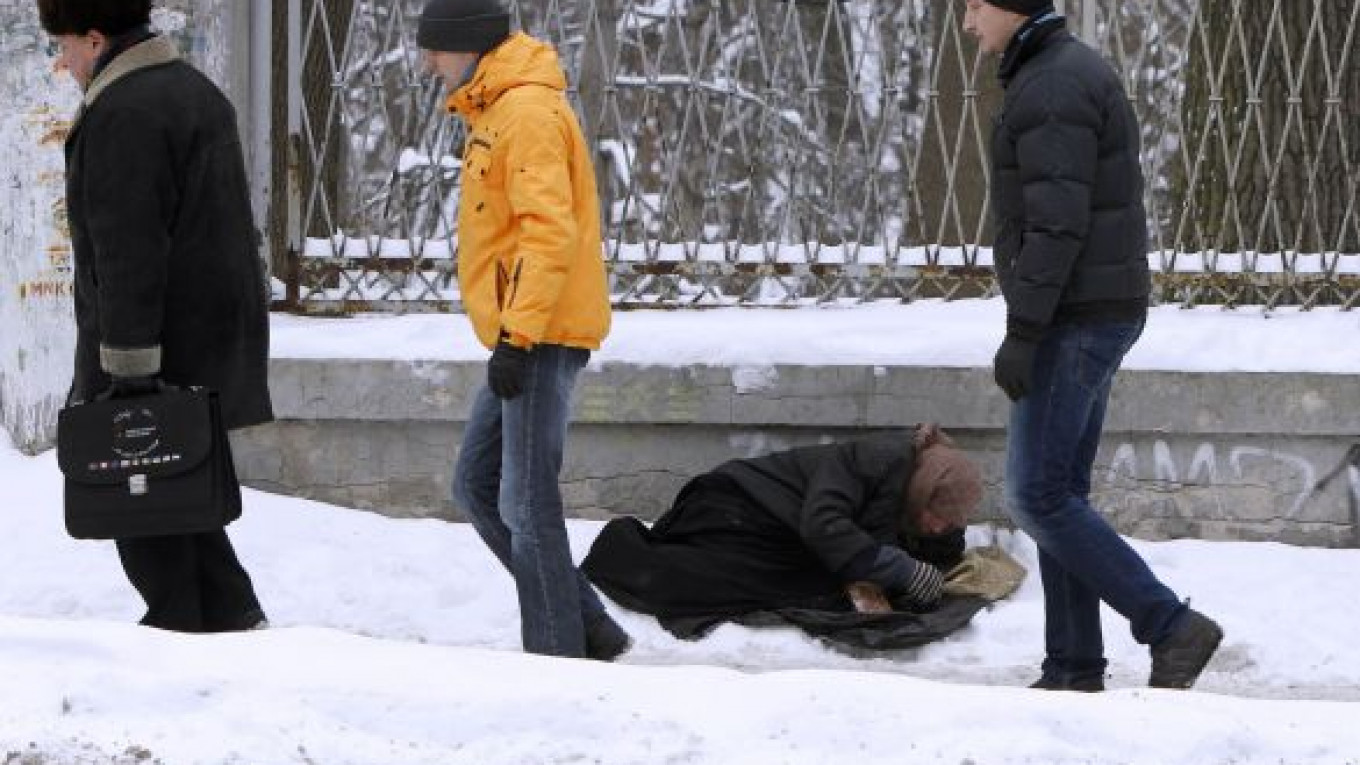KIEV — Ukraine, struggling to pay rising bills for Russian gas and with some areas suffering power rationing due to the severe cold, could halve its gas use by using it more efficiently, a European Bank for Reconstruction and Development official said.
High gas prices are a burden on Ukraine 's budget and a stumbling block in its loan talks with the International Monetary Fund.
Ukraine 's energy bind became tighter last week as night temperatures dropped to about minus 30 degrees Celsius, forcing it to run power plants at peak capacity and limit supplies in the southern Odessa region.
Gazprom said last week that Ukraine was taking Russian gas at a pace of 60 billion cubic meters a year, above volumes agreed in its contract, although Kiev quickly denied breaching any contract terms.
But nearly half of Ukraine 's energy generated from gas is wasted, according to Sergiy Maslichenko , a manager of the EBRD Energy Efficiency and Climate Change program in Ukraine .
"With the right conditions in place, Ukraine could cut its total gas consumption to 30 bcm a year from the current 55 bcm to 60 bcm … within 10 years," Maslichenko said.
"The residential sector could produce the highest savings."
Ukraine spends three times as much energy per $1 of its economic output as its Western neighbor Poland , according to specialist agency Enerdata .
Experts say much of its problem is that it has done little in 20 years of independence to change the Soviet-era energy infrastructure.
Its backbone industry, steel-making, relies heavily on open hearth furnaces that have been phased out and replaced with more energy-efficient equipment in the United States , Europe and China .
The situation is just as bad in the mainly gas-powered central heating system that warms homes and factories.
"Heat is being generated by old Soviet boilers built in the 1950s and 60s that have very low energy conversion efficiency, about half of the European level," Maslichenko said.
Boilers lack sensors and controls to adjust to changing weather conditions, leading to excessive heating in warm weather. Further down the chain, hot water moves through poorly insulated pipes to buildings that also lack flexible controls.
Finally, heat is wasted in leaky Soviet-era apartment blocks, which house millions of town dwellers. It often ends up doing nothing more than warming the atmosphere.
And while industrial companies, forced to pay the market price for gas, are gradually switching to more efficient equipment, households are reluctant to do so, preferring the cheaper option of energy prices kept artificially low by heavy subsidies.
Ukraine's government spends billions of dollars a year subsidizing household heating and gas prices, and its refusal to scrap the practice prompted the International Monetary Fund to halt disbursements under a $15 billion program last year.
Analysts say the situation is unlikely to change before parliamentary elections next October because raising household energy prices would hit the already sagging popularity of President Viktor Yanukovych's Party of the Regions .
A better approach, Maslichenko said, would be to replace the blanket subsidy with targeted payouts for the poorest households while helping homeowners improve energy efficiency.
Ukraine's government has declared energy efficiency one of its priorities after failing to negotiate cheaper Russian gas supplies for over a year. It wants to cut imports to 27 bcm this year from about 40 bcm in 2011.
However, all the previous energy-saving campaigns, which also coincided with tensions between Kiev and Moscow over gas prices, were short-lived and fizzled out once new gas deals were struck, Maslichenko said.
"We have yet to see these political statements backed up by concrete actions," he said.
"I am sure that if a solution is found [in gas talks between Russia and Ukraine ] this issue will become a secondary one.
A Message from The Moscow Times:
Dear readers,
We are facing unprecedented challenges. Russia's Prosecutor General's Office has designated The Moscow Times as an "undesirable" organization, criminalizing our work and putting our staff at risk of prosecution. This follows our earlier unjust labeling as a "foreign agent."
These actions are direct attempts to silence independent journalism in Russia. The authorities claim our work "discredits the decisions of the Russian leadership." We see things differently: we strive to provide accurate, unbiased reporting on Russia.
We, the journalists of The Moscow Times, refuse to be silenced. But to continue our work, we need your help.
Your support, no matter how small, makes a world of difference. If you can, please support us monthly starting from just $2. It's quick to set up, and every contribution makes a significant impact.
By supporting The Moscow Times, you're defending open, independent journalism in the face of repression. Thank you for standing with us.
Remind me later.






